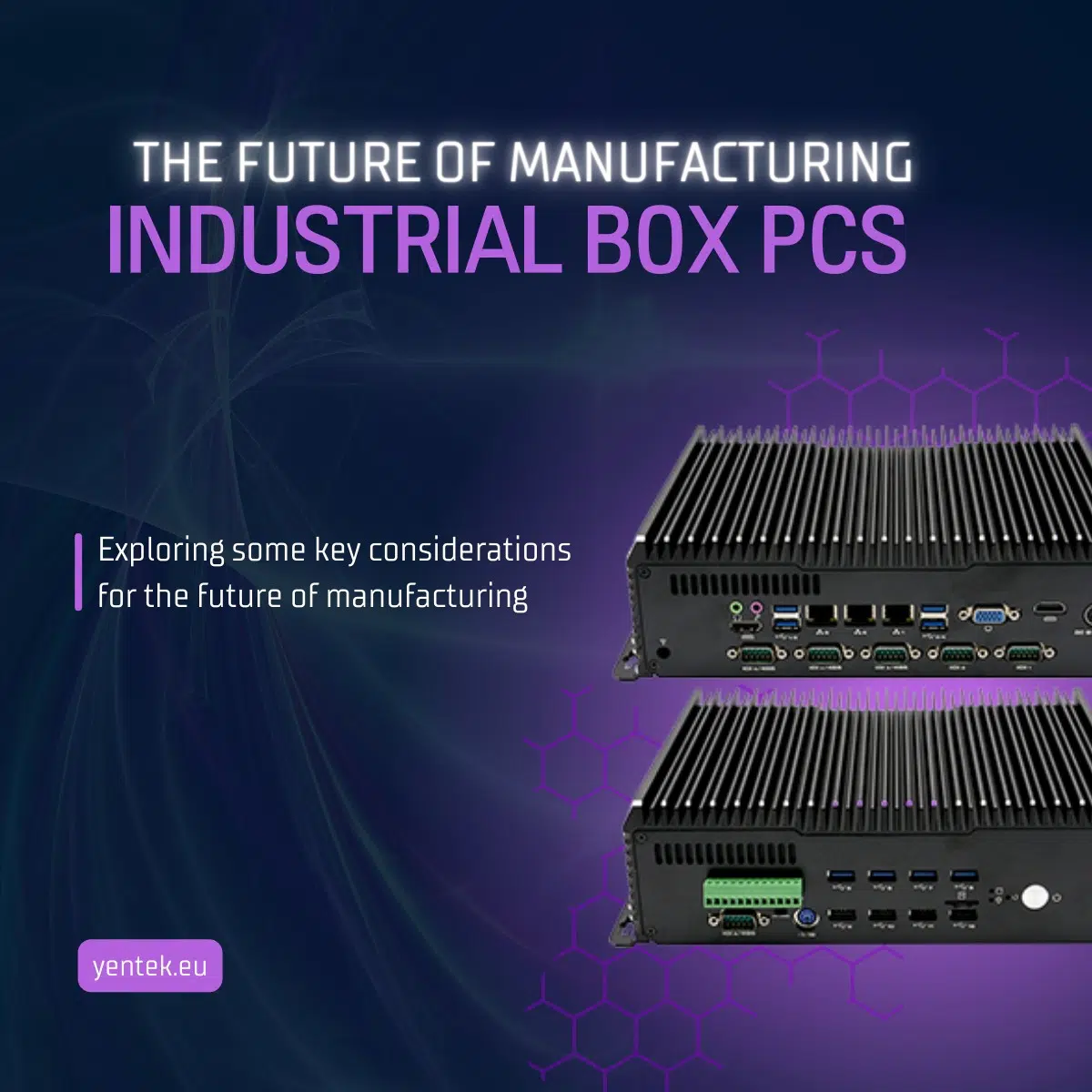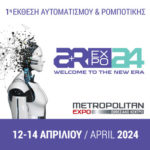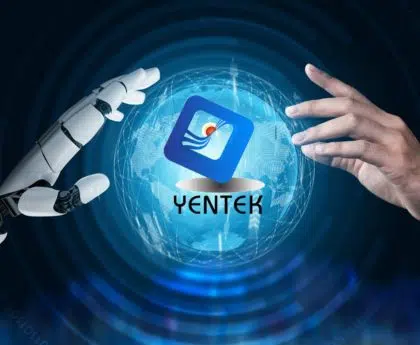Industrial Box PCs serve a variety of critical roles in streamlining the manufacturing process. Let’s explore these key applications, where these rugged computers form the foundation of modern manufacturing.
Process Control: Industrial Box PCs are the brains behind process control in manufacturing. They are used to monitor and manage various aspects of production, such as temperature control, pressure regulation, and quality assurance.
Data Acquisition: Gathering and analyzing real-time data is crucial in manufacturing. Industrial Box PCs facilitate data acquisition from sensors and devices, helping manufacturers make informed decisions and optimize their operations.
Human-Machine Interface (HMI): Industrial Box PCs serve as the interface between operators and the machines on the production floor. They offer a user-friendly graphical interface, enabling operators to monitor and control machinery efficiently.
Rugged and Powerful, these computer systems are designed specifically for harsh manufacturing environments. Unlike standard desktop computers, these specialized PCs are built to withstand extreme conditions, including temperature fluctuations, dust, humidity, and vibration. They are a perfect blend of industrial-grade durability and high-performance computing. These PCs are typically housed in a robust metal or aluminum chassis, which ensures protection against physical damage and electromagnetic interference. Moreover, they are equipped with various input/output ports, enabling seamless integration with manufacturing equipment, sensors, and other devices.
The future of manufacturing with Industrial Box PCs is expected to be shaped by several technological trends and advancements.
Artificial Intelligence (AI) and Machine Learning (ML):
The integration of artificial intelligence (AI) and machine learning (ML) into Industrial Box PCs will enable more advanced and predictive analytics. This can lead to improved process optimization, predictive maintenance, and better decision support for manufacturers. AI algorithms can be integrated with IoT devices to enhance automation. For example, in industrial settings, AI-driven automation can optimize production processes, control machinery, and respond to changing conditions without human intervention. Machine Learning algorithms can be employed to predict future events or trends based on historical IoT data.
This is particularly useful in predictive maintenance, where the health of equipment can be forecasted, minimizing downtime and reducing maintenance costs. Also, Machine Learning algorithms can identify abnormal patterns or behaviors in IoT data, helping to detect potential security threats or anomalies. This is crucial for ensuring the integrity and security of IoT networks and systems. AI-powered IoT applications can provide personalized experiences for users. For example, in smart homes, AI algorithms can learn user preferences and adjust settings automatically, enhancing the overall user experience. AI and ML technologies enhance the scalability and adaptability of IoT systems. As the number of connected devices grows, AI algorithms can efficiently handle the increasing volume of data and adapt to changing conditions and requirements.
5G Connectivity:
The implementation of 5G technology will enhance communication capabilities between Industrial Box PCs, machines, and other devices on the factory floor. This high-speed, low-latency connectivity is essential for real-time data exchange and control in smart manufacturing environments. One of the key advantages of 5G is its low latency, meaning there is minimal delay in data transmission. This is crucial for applications where immediate responses are required, such as control systems in manufacturing processes or robotics. 5G networks are designed to handle a massive number of connected devices simultaneously.
This increased network capacity is beneficial for industrial settings with numerous IoT devices and sensors, all of which may communicate with Industrial Box PCs. Can also provide improved reliability and stability, which is essential for critical industrial applications. The consistency in communication ensures that Industrial Box PCs can operate seamlessly without disruptions. Also, the high-speed and low-latency characteristics of 5G enable efficient remote monitoring and control of industrial processes. Industrial Box PCs can remotely access and manage systems, contributing to increased flexibility and responsiveness. As 5G technology continues to be deployed and matures, its impact on industrial communication and automation, particularly in conjunction with Industrial Box PCs, is likely to be transformative, enabling new levels of efficiency and capability in industrial processes.
Robotic Process Automation (RPA):
The integration of Industrial Box PCs with robotic systems will continue to grow. This includes not only traditional industrial robots but also collaborative robots (cobots) working alongside humans. RPA can lead to increased efficiency, precision, and automation in manufacturing processes. Robotic systems often rely on various sensors to perceive their environment; Industrial Box PCs can process data from these sensors, allowing robots to make informed decisions based on their surroundings and this capability is vital for tasks like object recognition and navigation. Through the integration of advanced algorithms and machine learning, robots can adapt to changing conditions and learn from their experiences, enhancing their overall functionality. The combination of Industrial Box PCs with robotic systems ensures precision and accuracy in executing tasks.
Whether it’s in manufacturing, logistics, or other industries, this level of control is essential for maintaining product quality and operational efficiency. Industrial Box PCs enable remote monitoring and control of robotic systems, this capability is valuable for maintenance, troubleshooting, and supervisory tasks, allowing operators to manage robotic operations from a distance. As Industry 4.0 initiatives gain momentum, the collaboration between Industrial Box PCs and robotic systems is likely to play a central role in the evolution of smart manufacturing and automation. This integration will contribute to more agile, efficient, and adaptable industrial processes.
Collaborative Ecosystems:
Industrial Box PCs will likely be part of larger collaborative ecosystems, where various devices and systems work together seamlessly. This could involve interoperability with other industrial automation components and cloud-based platforms.
The trend towards larger collaborative ecosystems in industrial settings aligns with the broader vision of Industry 4.0 and smart manufacturing. Industrial Box PCs are poised to be integral components within these ecosystems for several reasons:
Certainly, the trend towards larger collaborative ecosystems in industrial settings aligns with the broader vision of Industry 4.0 and smart manufacturing. Industrial Box PCs are poised to be integral components within these ecosystems for several reasons:
-
-
- Interconnected Systems: Industrial Box PCs serve as central computing units that can connect and communicate with various industrial devices, sensors, and control systems. Their role is crucial in fostering connectivity within the broader industrial ecosystem
- IoT Integration: Industrial Box PCs play a key role in integrating Internet of Things (IoT) devices. These devices generate valuable data that, when processed by the Industrial Box PCs, contributes to data-driven decision-making within the collaborative ecosystem.
- Edge Computing Capabilities: As part of the collaborative ecosystem, Industrial Box PCs often leverage edge computing. This allows for real-time processing of data closer to the data source, reducing latency and enhancing the overall responsiveness of the industrial system.
- Communication with Control Systems: In collaborative ecosystems, Industrial Box PCs act as intermediaries between various components, including control systems. They facilitate communication and data exchange, contributing to the coordination and synchronization of different elements within the industrial environment.
- Data Aggregation and Analysis: Industrial Box PCs are equipped to aggregate and analyze data from multiple sources. This data analysis is vital for gaining insights into the performance of different systems, optimizing processes, and making informed decisions within the collaborative ecosystem.
-





